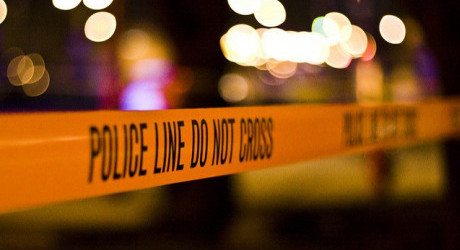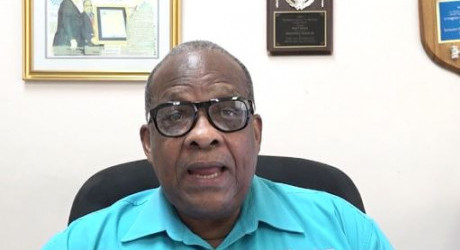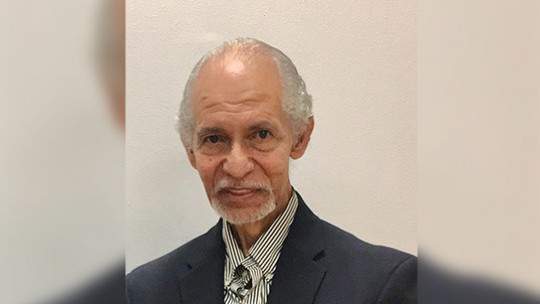Ending Illicit Firearms Trafficking to the Caribbean
8:15 pm, Sat March 30, 2024
By Ambassador Curtis Ward
Jamaican and Caribbean societies are ravaged by higher than normal homicide rates. Guns have, for many years, been the weapon of choice in the commission of violent crimes in the region, and Jamaica is reputed to have one of the highest homicide rates not only in the region, but in the entire world. Social and economic conditions, ineffective law enforcement and security capacities, and governance and institutional deficiencies aside, every study, including the UNODC Global Study on Homicide 2023, have shown that illicit firearms trafficking is the major driver of homicide in Jamaica and the Caribbean. Firearms and ammunition are not manufactured in Jamaica or elsewhere in the region. The majority of these weapons of death are illicitly trafficked from the United States.
For this singular reason, efforts to save Jamaican lives and the lives of others across the Caribbean region, Jamaican and other Caribbean governments have pleaded with successive U.S. governments to staunch the flow of illicit firearms from the U.S. mainland to the region. These entreaties have not resulted in any robust and effective response from U.S. governments. Though, during the Barack Obama administration efforts were made to increase the tracing of illicit firearms used in crimes in Jamaica. This initiative did not go far enough.
At the same time, the Obama administration introduced the Caribbean Basin Security Initiative (CBSI), in 2010, which provided massive financial and material support for law enforcement and security capacity building in Jamaica and across the Caribbean. Jamaica and other Caribbean countries failed to take full advantage of CBSI programs to strengthen border control and security targeting guns entering their territories. Even then, only the U.S. government has the capacity to end the sourcing and trafficking of illicit firearms from U.S. territory. There are efforts now underway in the Biden administration and in the U.S. Congress to change this paradigm. The violence in Haiti, fueled by illicit arms trafficking to Haiti, provides impetus for this most recent initiative.
The Bill, recently introduced in the U.S. Congress (House and Senate), the Caribbean Arms Trafficking Causes Harm (CATCH) Act, according to the sponsors, “would help curb illicit arms trafficking from the United States to the Caribbean.” This follows and strengthens rare gun legislation enacted in 2022. It is an encouraging further step in an arduous process to curb illicit arms trafficking to Jamaica and the Caribbean. However, it is not yet time to celebrate. The Bill faces a number of hurdles.
In reality, pro-gun Second Amendment maniacal view of any legislation which has the potential of exposing the ease with which these instruments of death are available in the U.S. characterizes all such legislation as creeping erosion or restriction of their unfettered constitutional right to gun ownership. The proposed new Bill, the CATCH Act, if it becomes law, will require reporting and transparency by the Justice Department in the full use of the bipartisan Safer Communities Act (SCA), which was enacted in 2022 making firearms trafficking a federal crime. The SCA, signed into law, in July 2022, by President Joe Biden, increased criminal penalties for straw purchasers and U.S.-sourced firearms trafficking. Many of these trafficked firearms are ending up in the hands of criminal gangs in Jamaica, Haiti and the rest of the Caribbean. These illicit firearms are killing Jamaicans, Haitians, and other civilians across the region
As with all gun legislation, there was considerable opposition by the gun rights lobbyists to the passage of the bipartisan SCA, and their influence over legislators is evidenced by this being the first time firearms trafficking has been characterized as a major federal crime thus empowering Justice Department prosecutors to proactively pursue illicit firearms trafficking, and imposing heavy penalties on offenders.
At the U.S.-Caribbean Leaders Meeting in The Bahamas, on June 8, 2023, Vice President Kamala Harris announced that the U.S. Department of Justice would create a new coordinator position, a Coordinator for Caribbean Firearms Prosecutions (CFP), which would help maximize information sharing between the U.S and Caribbean countries to support the prosecution of firearms.
The since appointed CFP Coordinator, Associate Deputy Attorney General (ADAG) Michael P. Ben’Ary, speaking at a Security Seminar in Kingston, in early February, 2024, emphasized the importance of firearms tracing to identify, disrupt, and dismantle firearms trafficking networks, and highlighted the close security partnerships between U.S. and Jamaican law enforcement in these efforts, and the steps that the Government of Jamaica and other Caribbean partners can take to increase joint efforts to counter illegal firearms trafficking.
Seeing that the process needed a boost, Sen. Chris Murphy, the leading arms control legislator in the U.S. Congress and co-sponsor of the CATCH Act in the Senate, noted that “this legislation would ensure the newly established Coordinator for Caribbean Firearms Prosecutions is implementing the law (the SCA) to its fullest extent."
The sponsors of the Bill seemed extremely concerned about the impact of illicit firearms trafficking on the carnage by gang violence in the streets of Port-au-Prince, Haiti’s beleaguered capital. However, the CATCH Act is not limited to Haiti but applies to prosecution of firearms trafficking to Jamaica and the entire Caribbean. As Rep. Joaquin Castro, co-sponsor of the Bill in the House said, “the CATCH Act will improve transparency and accountability within U.S. anti-trafficking efforts and prevent U.S. firearms from fueling gun violence in the Caribbean.” Senator Tim Kaine, cosponsor in the Senate, expressed similar views. He said, “Illicit weapons are a major source of instability in the Caribbean and are fueling the horrific scourge of gun and gang violence we’ve seen in Haiti.”
The only Haitian legislator in the U.S. Congress, Rep. Sheila Cherfilus-McCormick, Co-Chair of the House Haiti Caucus and a sponsor of the CATCH Act, noted that “Weapons trafficking by way of the United States is a major contributor to Haiti’s growing gang crisis and the current instability that plagues the country. She emphasized that the CATCH Act was intended as a means to ensure that “the Department of Justice is effectively utilizing the new anti-firearm-trafficking provisions in the Bipartisan Safer Communities Act.”
The sponsors of the Bill point out that the CATCH Act will address these challenges by requiring the Coordinator for CFP to report on the implementation of anti-firearm-trafficking provisions in the Bipartisan Safer Communities Act, which would include:
- The number, destination, and method of transportation of firearms, ammunition, and firearms accessories;
- Coordination efforts with Federal, State, and local law enforcement agencies; and
- Coordination efforts with the Department of Justice and any regional or international organizations, such as CARICOM.
While these initiatives, such as the bipartisan Safer Communities Act and the CATCH Act, if enacted, will contribute to the process of ending illicit arms trafficking to Jamaica and the Caribbean, the U.S. government will have to do more in terms of outgoing cargo screening and interdiction, and the Jamaica government must improve significantly its customs and border control capacities, including maritime border control.
ABOUT THE WRITER: Ambassador Curtis Ward is a former Ambassador of Jamaica to the United Nations with Special Responsibility for Security Council Affairs. He is an Attorney, international consultant, and geopolitical and security analyst. He is an anti-corruption, democracy, and human rights advocate, and Publisher of The Ward Post.

5:19 pm, Thu April 25, 2024

6:00 pm, Thu April 25, 2024

7:55 pm, Fri April 26, 2024








 All feeds
All feeds







